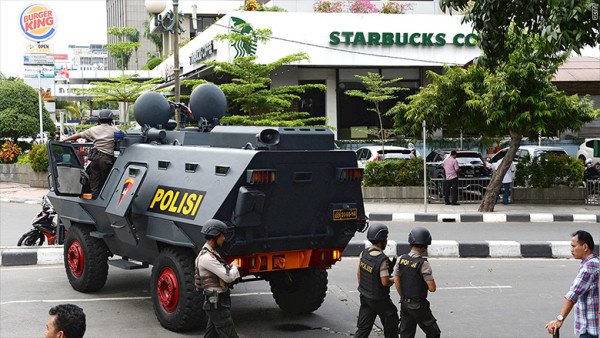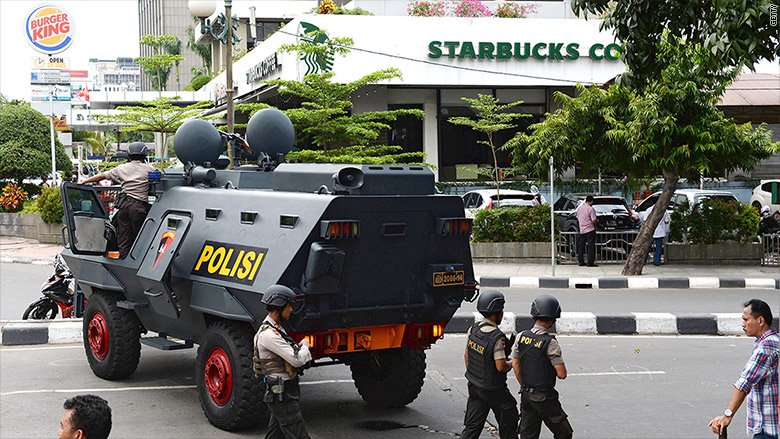Indonesian police have identified four out of five of the Jakarta attackers.
Two were previously convicted militants.
Police named one of them as Afif Sunakim. He was seen carrying a gun and rucksack during the attacks. He was given a seven-year jail term for attending a militant camp.
All five died in January 14 attacks, which left two civilians dead and were claimed by ISIS.
Three arrests were made on January 15 but it is unclear if they are connected.
Security forces battled militants for hours in the busy commercial district where the militants struck.
A Canadian and an Indonesian national died, and at least 20 people were injured.
The assault ended when two attackers died in a suicide bombing, police say, with the other three killed in gun battles.
Following recent ISIS threats, Indonesia, which had been attacked by Islamist militants several times in the past, had been on high alert.
Gen. Badrodin Haiti, the national police chief, said Afif Sunakim and one other attacker had both been convicted criminals.
Jakarta’s chief of police, Insp. Gen. Tito Karnavian, said a hunt was under way for terror cells believed to be behind the attack.
Three men were arrested near Jakarta, police told local media.
A police spokesman, Anton Charliyan, confirmed on that those who organized the attacks were associated with ISIS.
Two of the perpetrators, he added, were “known to have committed similar radical activities some time ago”.
Earlier, Bahrum Naim, an Indonesian believed to be fighting with ISIS in Syria, was named as the suspected co-ordinator.
Insp. Gen. Tito Karnavian said Bahrum Naim’s “vision” was to unite various ISIS-supporting groups across South East Asia.
ISIS released a statement saying it had targeted citizens of countries which are part of the international coalition fighting the group, which controls parts of Syria and Iraq.
Insp. Gen. Tito Karnavian said Indonesia had significantly developed its understanding of domestic militant networks since the 2002 bomb attack in Bali, which killed 202 people.
Some 1,000 people linked to radical networks had been brought to justice in Indonesia since 2000, he said, but some had since been released from prison and had “the potential to pose a threat”.
Indonesian President Joko Widodo tweeted on January 15 that there was “no place for terrorism on Earth” and that “every citizen in the world” needed to fight it.
Indonesia has suffered militant attacks in the past, but has been relatively successful in curbing home-grown Islamist extremism after a spate of attacks in the last decade.
